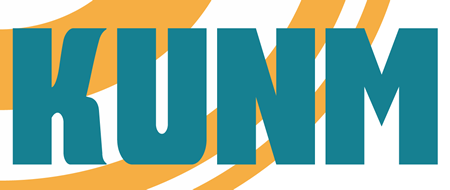We are seeking a contracted correspondent/producer to craft from one to four episodes per year of our multiple award-winning public radio series and podcast PEACE TALKS RADIO about to enter its 20th season. Although this is an open call for talent, qualified candidates of color are encouraged to apply.
The program is a non-partisan/non-political exploration of peacemaking and nonviolent conflict resolution. The series is heard regularly on 60 stations in 24 states and over 125 stations in 42 states have aired episodes in the series since its inception in 2003.
The series is executive produced by veteran public radio producer and consultant Paul Ingles who, for 20 years was also an active contributor to NPR News and other public radio programs.
The series produces 11 new episodes each year-long season along with a year-end compilation program of highlight segments from that year’s programs (produced by the executive producer).
Stations running the series on a regular basis air each season’s new episodes mixed in with evergreen episodes from the series’ archive of over 220 episodes. This affords a new station, picking up the series, a guarantee of 4 years of content before once hearing a repeated program.
Our programs routinely consist of two or three straight-interview segments, either on a single topic or different topics, all related to the art and science and history of peacemaking and nonviolent conflict resolution strategies.
Our programs spotlight peacemakers throughout history and people doing the good peace work around the world today.
We often emphasize personal peacemaking efforts in order to offer listeners a tool kit to experiment with to bring less conflict and more peace in their daily lives – within themselves and in their relationships with others either in their families, workplaces, schools, neighborhoods, nation or world.
Think of it as a FRESH AIR type format on peacemaking.
Your focus in this position will be to:
- generate program topics, in consultation with the executive producer,
- do preliminary research on the topics,
- book 2 or 3 guests for a program,
- remotely record the interviews via zoom or tape synch (typically about 30 minutes with each guest),
- edit show segments from the interviews for both the 59:00 length program and the 29:00 length program,
- write the brief intro and outro copy that will be delivered by the executive producer/series host,
- attain head & shoulders photos of each guest from them and other available photos or art work for the program website,
- and submit a list of additional resource links for the website.
Over the 19 years of the series, we’ve learned that an experienced reporter/interviewer/editor can achieve these tasks within about a 30 hour time allotment. The payment for the work on an episode is based on that presumed 30 hour time commitment and results in a flat fee of $1,000 per episode. It is based on a uniform payment rate in our organization.
Everyone from the executive producer, to the office assistant, to every freelance correspondent is compensated at an identical rate of $30 an hour for whatever they do. This expense outlay matches what we have been able to reliably raise each year from individual donors and small grants for our non-profit organization GOOD RADIO SHOWS, INC., which produces the series.
Please see more information about us, sample our programs, study the topics in our archive, at peacetalksradio.com.
To succeed in this opportunity, you have considerable experience in one-on-one interviews with guests, that involve solid preparation as well as excellent listening and reacting skills. You know the importance of the ‘devil’s advocate’ question. You are good at planning and editing an interview such that the listener is getting the real gems of the conversation.
And for our format, you know that the ultimate goal is to leave the listener with some idea of how they can use what they’ve heard from your guest to bring more peace, and to mitigate the conflict in their lives and our world.
In general, the hours are manageable and since programs usually address timeless topics and are not so much tied to specific current events in a quick turn-around way, programs can be planned and scheduled in coordination with the executive producer so as to give ample time to accomplish the work on each episode. This is work that can usually be accomplished around other commitments, including full time work.
We are very interested in hiring people of color for these assignments.
Work to start in 2022.


